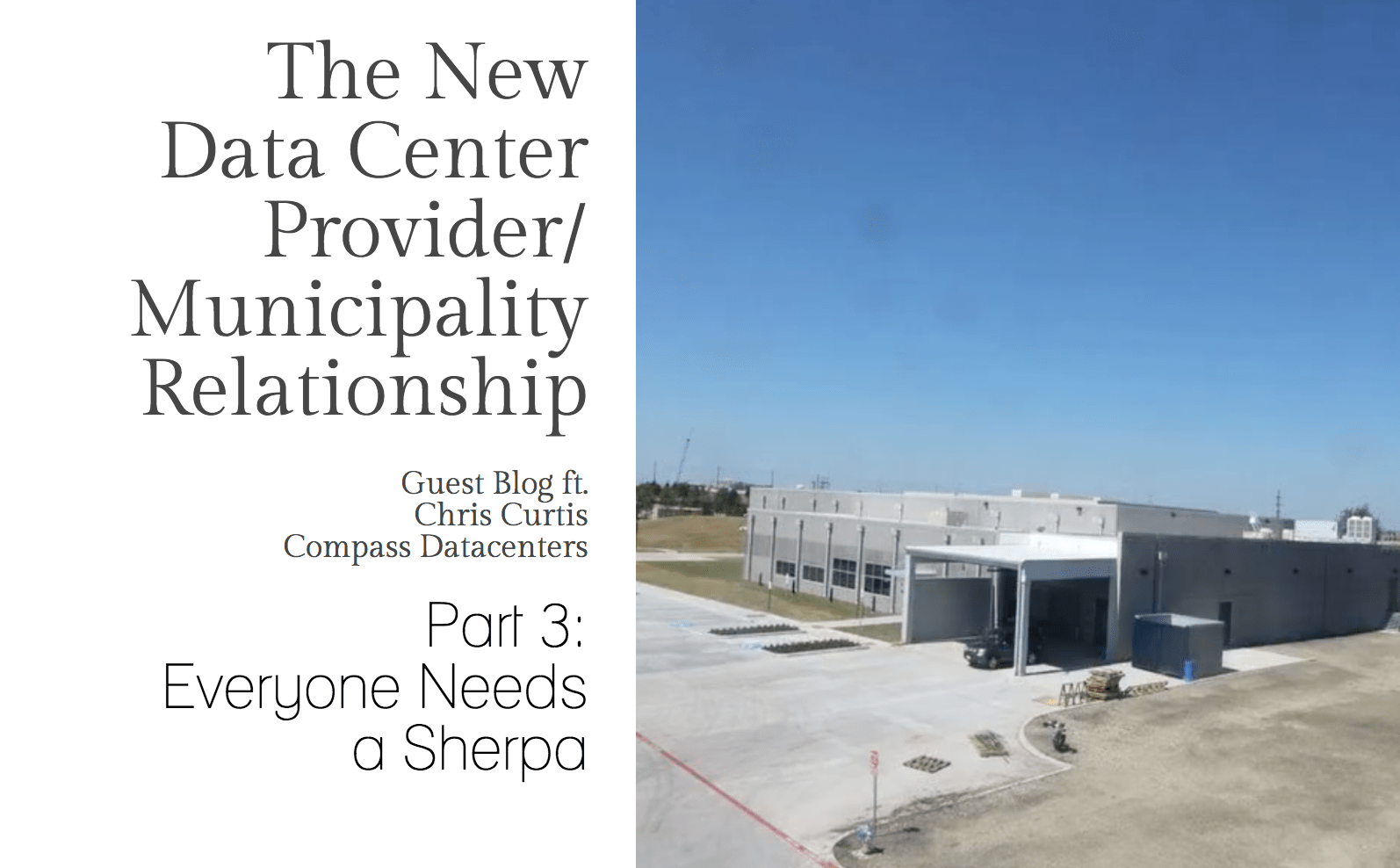By Luke Smith · 5/19/2017

This is part 3 of a 3-part series of posts about the new data center provider/municipality relationship. In September 2016, Compass announced their partnership to construct a new data center in Dallas for TierPoint. This series covers Compass’ process of delivering the facility for TierPoint, from land site selection, to construction and delivery. For parts 1 and 2 of this series, please see “A Case Study in Texas” and “Taking One for the Team.”
When Sir Edmund Hillary reached the summit of Mt. Everest he was accompanied by his Sherpa, Tenzing Norgay. While history has relegated Norgay to a footnote, his role in Hillary’s success is undeniable. You see, Norgay was familiar with the mountain; Hillary wasn’t. Together they navigated their way to the top of the world’s highest peak. I bring up this bit of historical trivia to illustrate a key point in data center site development which is: if you don’t have a Sherpa to guide you through the sometimes byzantine structures of municipal governments, you could be in for a rough time. Or as Hillary might have said, “Let’s take a look at that map again.” The Allen Economic Development Corporation (AEDC) served as our Sherpa on our recently completed project for TierPoint in metro Dallas, and played an integral part in ensuring that we met customer’s rigorous schedule.
The fastest way to get in trouble when building a data center is to do things before the city tells you that it is ok to do them. This is popularly known as a failure to follow the rules and is generally frowned upon by local governing bodies. Naturally, there is always tension between the developer’s desire to complete tasks as quickly as possible and the city’s desire to make sure they complete them consistent with their specific guidelines. In our case, the AEDC and the City of Allen developed a fast track permitting process that enabled us to perform our development and construction activities in an uninterrupted fashion and eliminate processes that can take up to six months or more.
To facilitate a structure that would enable the needs of the city to be addressed in concert with our specific development schedule, the AEDC was instrumental in the establishment of a special project related task force. This body included dedicated personnel for reviewing our plans and to coordinate the city’s building related activities. Through the establishment of this committee, Compass could work directly with dedicated resources from the city to enable us to quickly adapt or update our plans and actions based on issues as they arise. As much as you’d like everything in your development and construction activities to go according to schedule, building a data center, even with a partner as collaborative as Allen and the AEDC, is proof that Mike Tyson was correct when he said, “Everyone has a plan until they get hit.” The ability to quickly respond, and not having to wait for a permit or approval to implement the solution, is critical to meeting a demanding delivery schedule as was the case with TierPoint.
In any data center development and construction project your work is reviewed via a series of regular inspections. These inspections are done to ensure that every aspect of the facility, from the wiring to the fire system, has been completed in compliance with municipal codes, but often your project is at the mercy of the schedule of inspection personnel. Understanding the unique requirements and demands of the project, and how important it was to avoid process delays, AEDC worked with Compass to develop a “Just in Time” inspection system that allowed all inspections to be conducted in concert with project milestones. This unique solution allowed construction activity to proceed uninterrupted until the data center was completed.
Data center site acquisition, development and construction are a series of complex tasks that are ever more subjected to compressed delivery schedules. Success in these evolving environments is increasingly predicated on the ability to work collaboratively with the site’s governing municipality to navigate it’s unique permitting and approval processes. Our experiences with the City of Allen, and the AEDC, provides an example of how these new “partnerships” can result in a win-win situation for the provider, the city, and ultimately, the customer.